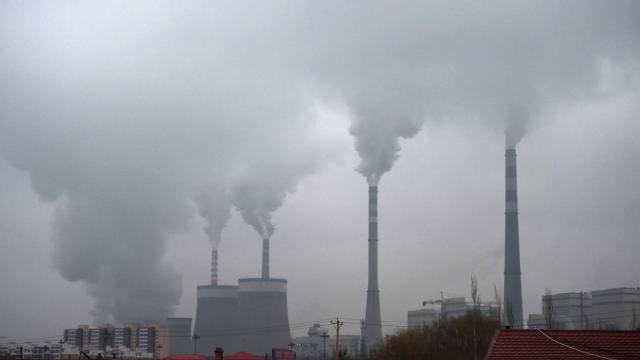
Fossil fuels have two major problems that paint a dim picture for their future energy dominance. These problems are inter-related but still should be discussed separately. First, they cause climate change. We know that, we’ve known it for decades, and we know that continued use of fossil fuels will cause enormous worldwide economic and social consequences.
Second, fossil fuels are expensive. Much of their costs are hidden, however, as subsidies. If people knew how large their subsidies were, there would be a backlash against them from so-called financial conservatives.
A study was just published in the journal World Development that quantifies the amount of subsidies directed toward fossil fuels globally, and the results are shocking. The authors work at the IMF and are well-skilled to quantify the subsidies discussed in the paper.
Let’s give the final numbers and then back up to dig into the details. The subsidies were $4.9 trillion in 2013 and they rose to $5.3 trillion just two years later. According to the authors, these subsidies are important because first, they promote fossil fuel use which damages the environment. Second, these are fiscally costly. Third, the subsidies discourage investments in energy efficiency and renewable energy that compete with the subsidized fossil fuels. Finally, subsidies are very inefficient means to support low-income households.
With these truths made plain, why haven’t subsidies been eliminated? The answer to that is a bit complicated. Part of the answer to this question is that people do not fully appreciate the costs of fossil fuels to the rest of us. Often we think of them as all gain with no pain.
So what is a subsidy anyway? Well, that too isn’t black and white. Typically, people on the street think of a subsidy as a direct financial cost that result in consumers paying a price that is below the opportunity cost of the product (fossil fuel in this case). However, as pointed out by the authors, a more correct view of the costs would encompass:
"not only supply costs but also (most importantly) environmental costs like global warming and deaths from air pollution and taxes applied to consumer goods in general."
The authors argue, persuasively, that this broader view of subsidies is the correct view because they “reflect the gap between consumer prices and economically efficient prices.”
Without getting too deep into the weeds, the authors discuss both consumer subsidies (when the price paid by a consumer is below a benchmark price) and producer subsidies (when producers receive direct or indirect support which increases their profitability). The authors then quantify what benefits would be achieved if the fossil fuel subsidies were reformed.
Interested readers are directed to the paper for further details, but the results are what surprised me. Pre-tax (the narrow view of subsidies) subsidies amount to 0.7% of global GDP in 2011 and 2013. But the more appropriate definition of subsidies is much larger (8 times larger than the pre-tax subsidies). We are talking enormous values of 5.8% of global GDP in 2011, rising to 6.5% in 2013.
The authors also broke the results down by fossil fuel type and usage (coal, petroleum, natural gas, electricity). It is not clear to me how the authors separated the various fuel sources out of electrical generation; however, the results show that petroleum and coal receive much larger subsidies compared to their counterpart fuels. The authors organized results by geographical region and found that the top three subsidizers of fossil fuels are China, USA, and Russia, respectively. The European Union is a bit less than half of the entire US subsidy. Other notable countries and regions are discussed.
There are two key takeaway messages. First, fossil fuel subsidies are enormous and they are costs that we all pay, in one form or another. Second, the subsidies persist in part because we don’t fully appreciate their size. These two facts, taken together, further strengthen the case to be made for clean and renewable energy. Clean energy sources do not suffer from the environmental costs that plague fossil fuels.
I asked one of the authors, Dr. Coady, why their work is important. He told me:
"A key motivation for the paper was to increase awareness among policy makers and the public of the large subsidies that arise from pricing fossil fuels below their true social costs—this broader definition of subsidies accounts for the many negative side effects associated with the consumption of these fuels. By estimating these costs on a global scale, we hope to stimulate an informed policy debate and provide renewed impetus for policy reforms to reap the large potential benefits from more efficient pricing of fossil fuels in terms of improved public finances, improved population health and lower carbon emissions."
As a climate scientist, I focus almost exclusively on the scientific questions related to climate change. But equally important are the economic issues that, when dealt with, will usher in a new era of energy.
3 WAYS TO SHOW YOUR SUPPORT
- Log in to post comments














